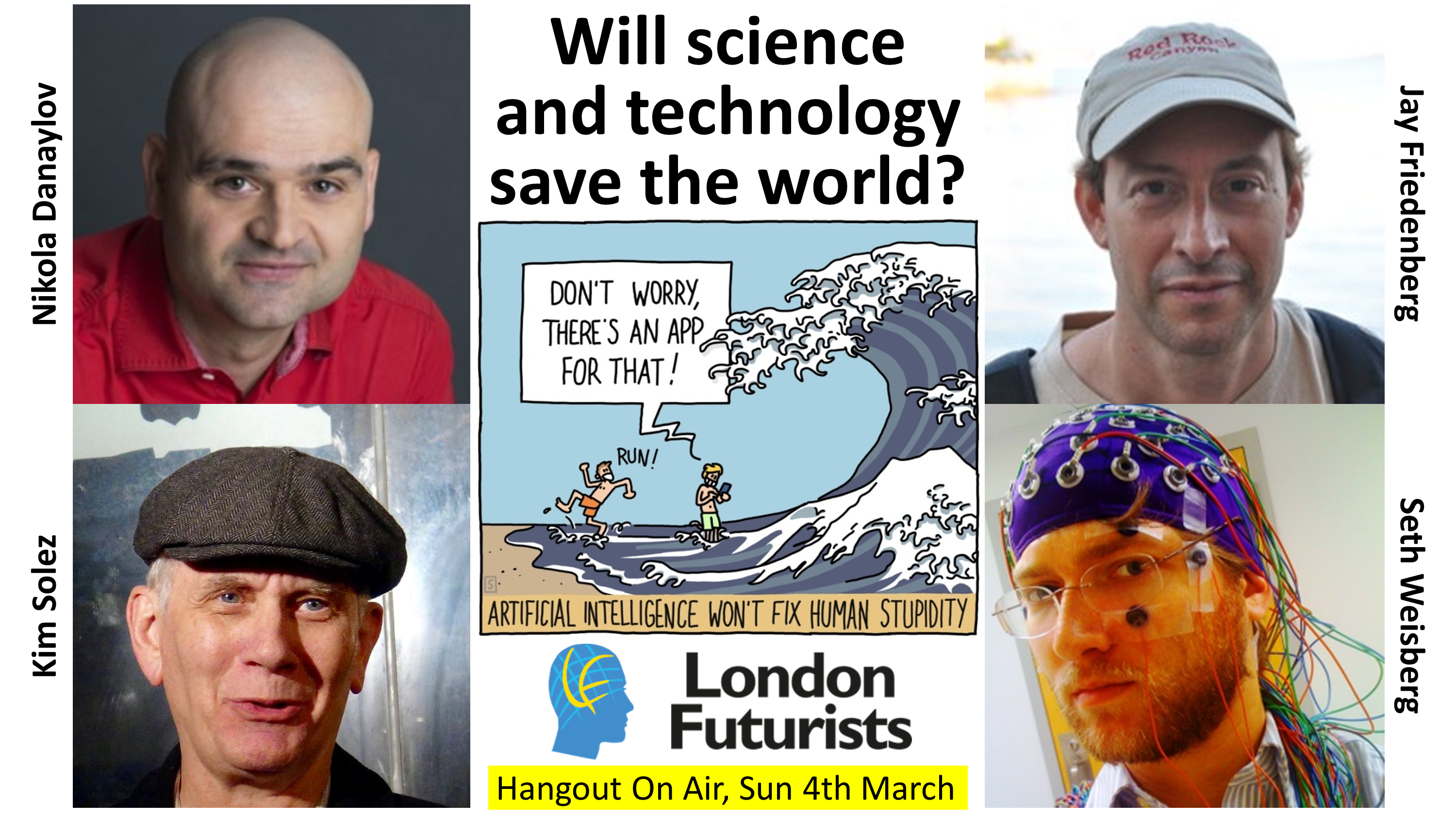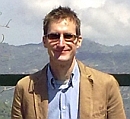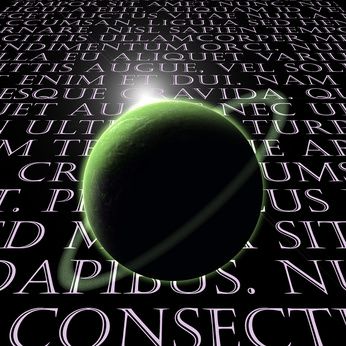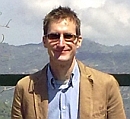 The green revolution in agriculture has freed hundreds of millions around the world from the risk of starvation. The Internet is providing knowledge-on-tap to people as never before. Lifespans have doubled due to remarkable progress in medicine. New desalination techniques are poised to solve problems of shortage of fresh water. Our remaining resource problems can be solved by synthetic biology, nanoscale molecular manufacturing, and asteroid mining. The threat of climate change can be tamed by carbon capture and geoengineering. Although doomsayers are distracted by rolling news stories that highlight human failings in graphic terms, the big picture is that science and technology are changing the world into a much better place. Right?
The green revolution in agriculture has freed hundreds of millions around the world from the risk of starvation. The Internet is providing knowledge-on-tap to people as never before. Lifespans have doubled due to remarkable progress in medicine. New desalination techniques are poised to solve problems of shortage of fresh water. Our remaining resource problems can be solved by synthetic biology, nanoscale molecular manufacturing, and asteroid mining. The threat of climate change can be tamed by carbon capture and geoengineering. Although doomsayers are distracted by rolling news stories that highlight human failings in graphic terms, the big picture is that science and technology are changing the world into a much better place. Right?
Not every futurist is convinced by this techno-optimistic narrative. Here’s a forceful critique by renowned speaker, blogger, and interviewer, Nikola Danaylov:
I am tired of hearing that science and technology will save the world.
It is almost the same as saying “Jesus will save you!”
It evokes the very same passive quasi-religious hope that something or someone out there will magically solve all our problems, bring abundance in our lives, help us live forever and bring back the dead.
I am sorry to break this to you but science and technology will not save the world. Never have…
Our civilization is like an alcoholic with a failing liver – we hope we can 3d bio-print a new one just in time, while failing to acknowledge our self-destructive habits and our own responsibility, thereby failing to address the actual problem, rather than the symptom.
It’s like hoping to win the lottery – it’s not totally impossible, but it is almost certain we won’t. (And even if we do, then what? It will only provide more time, not necessarily a solution.)
And so we sit, and wait, and hope for science and technology to come save the world. And we are getting both fat and lazy as we are eating and driving ourselves to death. Both personally and collectively.
(You can read the full article at https://www.singularityweblog.com/technology-is-not-enough/.)
In this London Futurists online video conference, a number of futurists from around the world will be debating questions such as:
- What are the risks of over-reliance on technology?
- What are the risks of under-reliance on technology?
- What goals should be set for the use of science and technology?
- To what extent is it desirable to try to regulate the development and use of technology?
- What are the most effective methods to steer the development of technology? Politics? Public advocacy? Or what?
Panelists
Nikola Danaylov – aka “Socrates”, host of the popular Singularity.FM podcast, and author of Conversations with the Future: 21 Visions for the 21st Century
Kim Solez, Director of the course “Technology and the Future of Medicine” at the University of Alberta
Jay Friedenberg, Psychology Professor, Manhattan College, and author of Humanity’s Future: How Technology Will Change Us
Seth Weisberg, Graduate Research Assistant, Department of Neuroscience, University of Texas at Austin, previously worked at the Center for Complex Systems and Brain Science at Florida Atlantic University
The discussion is hosted and moderated by David Wood, the Chair of London Futurists, and the author of Transcending Politics.
Related Articles
-
-
- Technology is NOT Enough!
- Technology is the How, not the Why or What
- Why the politics of the future is technology and technology is the future of politics
- The World is Transformed by Asking Questions [draft]
- Our Future, AI and Veganism: 6 Reasons Why I Went Vegan
- On Singularity University and the Danger of Being Exponential
-


 Steve Morris read Physics at University College, Oxford and graduated in 1989 with first class honours. He spent ten years working for the UK Atomic Energy Authority at Harwell, Oxfordshire, before starting his own internet company. He now writes for technology review website
Steve Morris read Physics at University College, Oxford and graduated in 1989 with first class honours. He spent ten years working for the UK Atomic Energy Authority at Harwell, Oxfordshire, before starting his own internet company. He now writes for technology review website 

 On joining
On joining